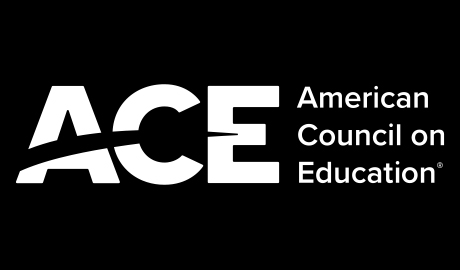Intro to Psychology – Online Higher Education Course
This introduction to psychology takes your students on a journey into the most complex system in the known universe: the human mind. In this 100% online college course, students explore real-world case studies.
A New Way to Learn Psychology
In this course, students will:
- Discuss the key concepts of major subdisciplines of psychology
- Understand psychological research methods and evaluate research findings
- Learn how to strengthen personal relationships using social psychology
- Explore evidence-based techniques for improving memory and study habits
- Describe ethical considerations and principles used in psychological research and clinical practice
Gen Ed That Simply Works

Turnkey Courses
With online, asynchronous courses that are ready to run, you can deliver high-quality learning and outcomes predictably and affordably.

Curriculum You Can Trust
Every course is recommended by the American Council on Education. So you can trust the curriculum meets rigorous academic standards.

Captivating Student Experience
Students enjoy cinematic lectures from experts in the field and interactive, mastery-based learning—all in a flexible, 14-week course that fits their schedules.

Unlimited Enrollment
With no minimum or maximum enrollment, students get the courses they need when they need them, so they stay on track in their degree program.
Discover the magic of learning with Intro to Psychology
Watch the Trailer
Explore the science of the mind
-
Key Concepts
-
Learning Outcomes
-
Assessments
-
Educator Support
-
World-Class Instructors
Key Concepts Covered
-
Intro
- The scientific method
- Research in psychology
- Statistical analysis
- Ethical research
- Cultural psychology
-
The Brain
- The nervous system
- The study of the brain
- Neurons and neurotransmitters
- The endocrine system
- Perception
- Vision, audition, and other senses
- Classical conditioning, operant conditioning, and observational learning
-
Memory and Intelligence
- Encoding, storing, and retrieving memory
- Forgetting and improving memory
- Cognitive psychology
- Measuring intelligence
-
Social Psychology
- Elements of language
- Language development
- Personality psychology
- Psychodynamic theories
- Approaches to personality: trait, humanistic, behavioral, social-cognitive, and biological
- Social influence
- Social thinking and cognition
- Prejudice, aggression, and relationships
-
Developmental Psychology and Abnormal Psychology
- Emotion and emotional expression
- Theories of motivation
- Developmental psychology and theories of development
- Stages of development
- Consciousness, sleep, and other altered states
- Psychological disorders and abnormal psychology
- Treatment practices for mental disorders
- The sociocultural model of psychology
- Happiness and stress
Course Learning Outcomes
-
Course Learning Outcomes
- Discuss foundational concepts and research findings in psychology
- Summarize the key concepts of major subdisciplines of psychology
- Describe psychological research methods
- Evaluate psychological research findings
- Describe the ethical considerations and principles used in psychological research and clinical practice
Assessments
-
Quizzes and Exams
- Course quizzes and exams consist of multiple choice, true/false, select all that apply, matching, and open-response questions. All are autograded by the LMS, so educators can spend more time with students and less time grading.
Educator Support & Dashboard
-
Access All Course MaterialEducators and administrators have full access to the Partner Dashboard and all course material from Day 1.
-
View Course MilestonesEasy-to-use tools show milestone dates and deadlines for the cohort, as well as the full weekly course schedule.
-
Monitor Student Progress in Real TimeCoach students throughout the course—from registration to the final exam—with complete reporting on their current course grades, assessment scores, and engagement with course material.
-
Download Student Grades & ProgressEducators and administrators can download student grades and full progress report details in CSV format.
-
Review Student Submissions for Graded AssessmentsEducators and administrators can view student-submitted answers to assignments, quizzes, and exams.
World-Class Instructors
-
World-Class Instructors
We selected a dream team of 12 renowned instructors to take students deep inside the human psyche.
- Jay Van Bavel, Ph.D., NYU
- Paul Bloom, Ph.D., Yale University
- Alana Conner, Ph.D., Independent Researcher and Author
- Spencer Kelly, Ph.D., Colgate University
- Daniel Lerner, M.A.P.P., Independent Author
- David Pizarro, Ph.D., Cornell University
- Nnamdi Pole, Ph.D., Smith College
- Lawrence Ian Reed, Ph.D., NYU
- Sasha Reid, Ph.D. Candidate, Independent Researcher and Author
- Marjorie Rhodes, Ph.D., NYU
- Abigail Stark, Ph.D. Candidate, Massachusetts General Hospital, Brigham
- Monica Thieu, Ph.D., Columbia University
Intro to Psychology FAQs
-
How are Outlier courses structured?
Outlier courses are divided into a series of chapters and sections. Each section contains cinematic video lectures and active learning (our interactive digital textbook) that help students learn the course content.
Covering topics from Consciousness to Happiness, Intro to Psychology offers real-world case studies and the latest tools to understand what makes us… us. Students demonstrate their knowledge on graded assessments, including mastery-based quizzes they can retake up to 5 times to etch these lessons into their long-term memory.
-
Are there any course prerequisites?No.
-
Are there any student eligibility requirements?
Students must be at least 13 years old. Students who enroll in an Outlier course should be ready for the academic rigor of college-level coursework and carefully consider their existing responsibilities and dedication.
-
What technology does my school need to take Outlier courses?
Each student must have access to technology that meets the technical requirements noted in this Help Center article.
-
What is the minimum/maximum enrollment?
All Outlier courses have unlimited enrollment, with no minimum or maximum. So they easily adapt to your scheduling and staffing needs.
-
What support is available for educators?
Your educators get complete visibility into student progress in the Partner Dashboard, including:
- Progress monitoring based on the course syllabus and schedule
- Grade pacing and forecasting based on students’ performance
-
Is the Intro to Psychology course completely online?Yes, Outlier courses are 100% online and asynchronous. Your students can learn during any class period—anywhere in the universe with Wi-Fi and a laptop or desktop computer.